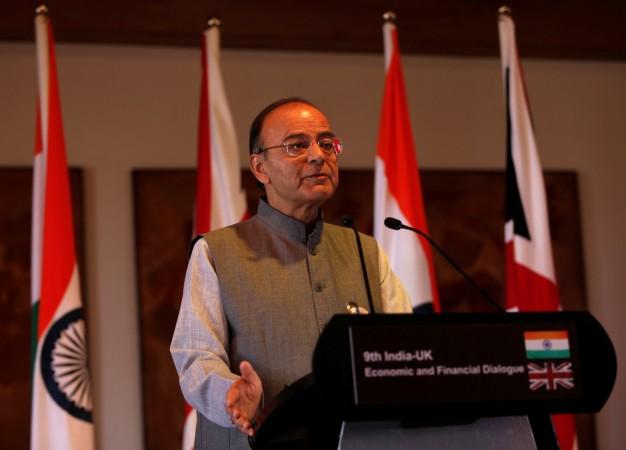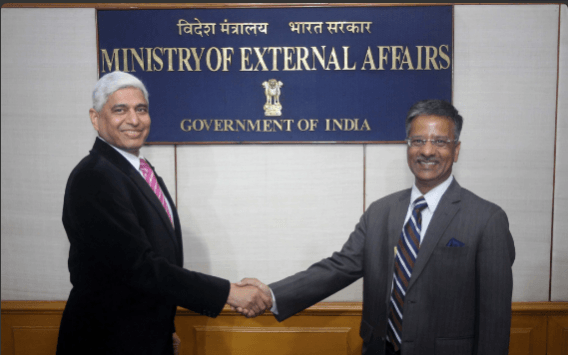
Minister of Finance Arun Jaitley, who is on a three-day visit to Washington DC, "strongly raised" the H-1B visa issue with US Commerce Secretary Wilbur Ross drawing his attention to the key role played by Indian professionals in the US. Jaitley is in the US, along with an Indian delegation, to attend the Spring meeting of the International Monetary Fund and the World Bank that takes place every year.
An Indian official was quoted by the Hindustan Times as saying that the finance minister told Ross about the significant contribution of Indian IT companies and professionals in the economic development of the United States and India. Jaitley also emphasised on the fact that this contribution must continue for the benefit of both countries.
Union Commerce Minister Nirmala Sitharaman also said on Thursday that the "whole debate" on the H-1B visa needs to be expanded to include American firms that are earning their profits in India, indicating that the central government could retaliate to the US administration's decision to protect its domestic industries from foreign competition.

Sitharaman added: "Let us also understand that not just Indian companies in the US, several big US companies are in India too. They are also here, they are earning their margins, they are earning their profits which goes to the US economy.
"So, it is a situation where it's not just unilateral just Indian companies having too face the US executive order, there are several US companies in India who are doing business for some years now and therefore I want this whole debate to be ... if it has to be expanded, it has to be expanded to include all these aspects and we shall ensure that all these factors are kept in mind," the minister added.
Sitharaman also said that she would prefer constructive engagement with the US at this point. However, she made it clear that India would not accept any "unfair treatment".
Ministry of External Affairs spokesperson Gopal Baglay described the debate on the H-1B visa as a "trade and services issue, and not a matter relating to immigration." He added that India would assess the overall impact of the changes after the internal process related to the visa programme ended in the US. The foreign ministry assured that the matter would be taken up with the Donald Trump-led administration.
"There is a mutuality of interests involved," Baglay said, referring to the huge number of US professionals working in American IT companies in India. He added that the executive order has to be "acted upon". The MEA has said that it was keeping a "close watch" on the United States' decision to tighten H-1B visa rules that will have an effect on the Indian IT industry and the professionals working in this industry.

"It is an internal process in the US which will unfold in the coming days and weeks and we will keep a close watch on that. We will keep this issue on our radar," Baglay told reporters, adding that the Indian government has brought the US' attention to the contribution of Indian IT professionals in the competitiveness and innovation of their country.
US President Trump on Tuesday signed an executive order to overhaul the current H1-B visa system, to end the purported visa 'misuse' by many employers who replace American workers with lower-paid foreigners. The move seeks to ensure that the H-1B visas are given to the "most- skilled or highest paid" petitioners. The administration also proposes to replace the present lottery system with a merit-based approach when it comes to issuing the H-1B work visas.
Baglay also shrugged off concerns over Australia replacing the 457 work visa regime with another programme. The MEA spokesperson said that senior Australian officials told India that the move would have "negligible" impact on Indian professionals working in the country as they are in the high-skill category.
Australian Prime Minister Malcolm Turnbull tightened the country's citizenship rules on Thursday, making it more difficult for immigrants to take permanent residency in the country. He scrapped the country's popular guest worker visa programme 457, saying that it will be replaced with a new version which will only recruit the "best and the brightest" of applicants and which would require higher levels of English-language proficiency and job skills. The 457 work visa is used by more than 95,000 foreign workers, mostly Indians.








